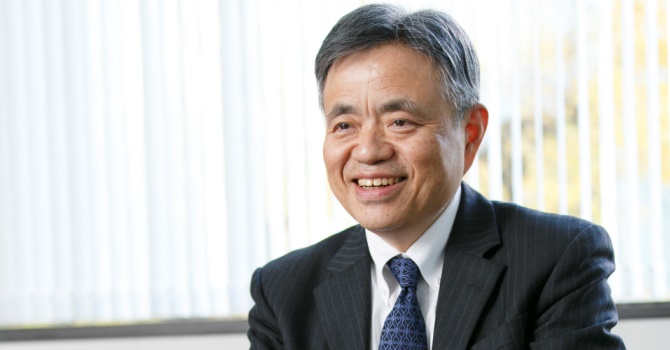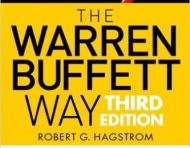Yoshihiko Ito

- Classification
- Equity
- Company
- Nippon Value Investors KK
Yoshihiko (“Yoshi”) Ito started his career in the asset management field in the late 1980s. In the mid-1990s, as a trainee investment professional at the British firm Silchester International Investors, he diligently studied value investing based on individual company’s fundamentals. Yoshi then used the value-investment philosophy and approach to invest in Japanese equities at a large Japanese investment management firm. He established Nippon Value Investors with his colleagues in 2005. Since then, Yoshi and his colleagues, who worked together at the Japanese investment management firm since 1999, have been implementing this value philosophy and approach of identifying and investing in undervalued companies in the Japanese equity market. Yoshi is a graduate of Tokyo University of Foreign Studies and earned his master's degree in Finance at London Business School. He is a chartered member of the Securities Analysts Association of Japan.

Nippon Value Investors KK (“NVI”) was founded in 2005 to specialize in Japanese equity investment management.
The ultimate objective of NVI’s investment program is to maximize the intrinsic value (economic value calculated based on earnings, book value, and dividends) of the portfolio, which NVI believes to be reflected in the market value of the portfolio over time.
NVI is a bottom-up, value investor.That is to say that NVI expects the securities that it owns to be relatively cheaply priced.However, NVI both recognizes and stresses that just because cheaply priced securities tend to perform better, this does not mean that every cheaply priced security will automatically be a good investment.Far from it.Many securities are cheap because of a fundamental weakness of the underlying company, its balance sheet, products/services, operation or management. The quality of business matters.NVI’s ideal investment is a good business that is soundly financed, well managed and available at an attractive price.
NVI’s investment approach is pure bottom-up and research-driven.The three steps of its investment process focus on:
1) database screening to identify companies which meet its value criteria,
2) fundamental company research, i.e. financial analysis to identify the strength and liquidity of the balance sheet and cash flows, quality assessment by analyzing products/services, operational strength, growth opportunities and management, and normalized earnings/free cash flow analysis.
3) investment decisions to allocate capital to companies with attractive valuations relative to their quality.
All the members of NVI’s investment team participate in each step as research analysts/portfolio managers to construct and maintain a single model portfolio which is provided to all clients on an equal basis.

NVI does not make any theme-based investments. NVI invests based solely on each company’s relative attractiveness with regard to the balance between quality and valuation.
NVI believes that there are always opportunities where certain companies’ valuations become cheap relative to their quality for certain reasons.
These reasons vary from time to time and, as of today, the economic slowdown in China and emerging countries is one example. But as NVI’s investment time holizon for each stock tends to be between 3 to 5 years on average, negative factors like this that investors are currently worried about are more likely to be relatively short-term noise.
NVI’s stock selection process enables us to maintain the average valuation of NVI’s portfolio at discount from the market. Our back-test results show that relatively cheap stocks as a whole tend to outperform the market from a medium- to long-term perspective. Since our inception, our track record has been better than the backtest results because we try to avoid value traps by carefully assessing valuations of companies against their quality.
Right after receiving my college degree, I was assigned to manage a foreign bond porfolio and its various currency exposures at an agricultual cooperative insuarance organization. It was fascinating to learn how to manage money while macroeconomic factors in various countries caused interest rates and foreign exchange rates to change.
Several years later, I started managing a European equity portfolio at a London-based affiliate of a Japanese life insurance company. At first, we were using a so-called top-down approach. We started with macroeconomic analysis of each country on which our country and sector allocations were based. Individual stock selection followed at the very end and inevitably played a smaller role. Asset allocation at that time was generaly said to decide 80% of investment performance.
In 1996, I happened to become a trainee at a value-based investment management company in London, Silchester International Investors, for one year. Silchester’s investment process was pure bottom-up. All they concentrated on was individual company research without bothering about any macroeconomic analysis and related research. The completely different approach was fascinating enough to quickly transform me and the whole team at that time into bottom-up value investors. Since 2005, when NVI was founded, we have naturally maintained the bottom-up investment process where we select individual stocks based on the same value philosophy.

As a portfolio manager, I always keep in mind the following points.
・The investment return of the portfolio over the medium- to long-term reflects the porfolio’s growth of intrinsic value.
・Therefore, it is best to concentrate on bottom-up based stock selection and investment activities. The goal is to enhance the portfolio’s intrinsic value over time, which is our ultimate objective, rather than worry about short-tem changes in the market environment (such as changes in sectors that may outperform) .
The above points are shared amongst all the team members and our investment activities involve buying/selling individual stocks with good price discipline. Our decisions are based on assessments to determine if valuations are cheap/expensive compared with quality. Short-term factors have no influence.

For NVI, the ultimate way to protect clients’ assets is to avoid investing in expensive stocks which may cause a “permanent loss of capital”. NVI conducts careful assessments of the quality and valuation of individual stocks to avoid a “permanent loss of capital” by investing in expensive stocks.

The book I recommend most is:
The Warren Buffett Way (Third Edition) by Robert G. Hagstrom
This book concisely but exhaustively describes three points that are quite inspiring for equity investors :
Firstly, why Warren Buffet has become the world’s greatest investor. Secondly, three people who have significantly influenced the way Mr. Buffett invests. Thirdly, various points that Mr. Buffett considers before making investment decisions.
The first edition of the book was published in 1994, followed by the second edition in 2004 and the third edition in 2013. Amazingly, even the first edition published more than 20 years ago can be re-read without any sense of strangeness.

As a portfolio manager of Japanese equities, every morning on my way to work, I check three Nikkei newspapers including the ones specializing in industrial news and retail/marketing news. On my way home in the evening, I read articles involving Japan in the Financial Times and Wall Street Journal. Over the weekend, I read The World This Week, Leaders and other relevant articles in The Economist.
Reading foreign newspapers and magazines may not necessarily have a direct impact on my daily investment work. But I still think it is important for me to understand what is happening in Japan in a global context.
Notes:
This article originally appeared on January 13, 2016. Any views presented in this article are as of such date and are subject to change.
This article and the information provided therein are not a recommendation to purchase or sell any security, nor are they intended to constitute the marketing of, or a solicitation for investment in, any investment product.
Nippon Value Investors KK (“NVI”) was founded in 2005 to specialize in value-oriented Japanese equity investment management. Our portfolio managers on average have more than 25 years of investment experience and have been working together since 1999 to manage value-oriented Japanese equity investments.
NVI directors and employees own a majority of the firm and are stable shareholders. We believe that this autonomy and internal ownership allow us to pursue a coherent investment philosophy and to maximize the alignment of our interests with those of our clients.
NVI’s investment program invests in companies which are considered to be cheap against their quality. NVI believes good investments are a product of paying attractive prices relative to the quality of the companies in which we invest. Investors who ignore short-term market jitters and focus instead on a company's underlying strengths are better positioned to identify opportunities to buy good companies at attractive prices. Our investment professionals focus on company fundamentals to identify true value opportunities.
Our investment approach is pure bottom-up and research-driven. The three stages of our research approach are;
|
1) |
Database screening to identify companies that meet our value criteria primarily by using price/earnings, price/book value and dividend yield, |
|
2) |
Financial analysis to identify the strength and liquidity of the balance sheet and cash flows, and |
|
3) |
Fundamental analysis of each company’s products, franchise, market opportunities and management. |
Meeting company management is a critical step for us in making the final assessment. One of the goals of this thorough research process is to identify attractive value opportunities relative to the quality of the company in order to construct our portfolio. Continuous efforts are made to rotate capital to better value opportunities. All of our investment professionals participate in each process as research analysts and portfolio managers.

January 13, 2016
by Investment in Japan

